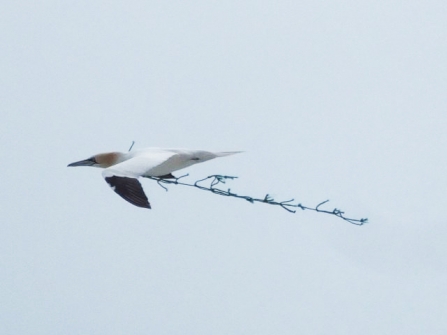Our beaches are home to a great abundance of marine wildlife, from seals to seahorses and rocky reefs to sea grass meadows. For many, this is what makes the south coast such a marvellous place to live.
However, the sparkling waters and shingle beaches that characterise our area and play a vital role in our health and happiness are at great risk. A staggering 8 million metric tonnes of plastic ends up in the ocean every year where it chokes, entangles and poisons our precious marine life.
The seabirds that adorn the sky often feed on the ocean surface, and are particularly susceptible to ingesting plastic debris that floats on the water. The indigestible plastic sits in the birds’ stomachs, substantially reducing storage volume. This renders them incapable of eating enough food to survive, so they become malnourished and eventually starve.

